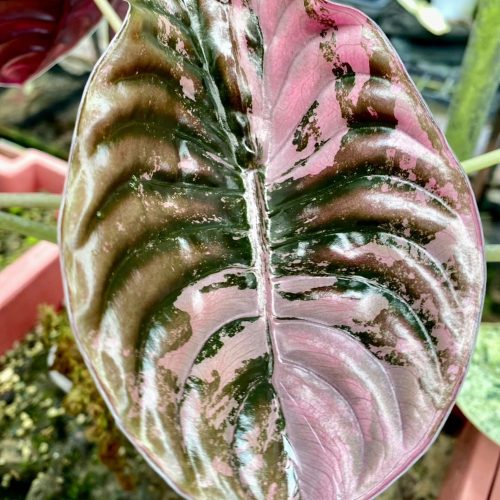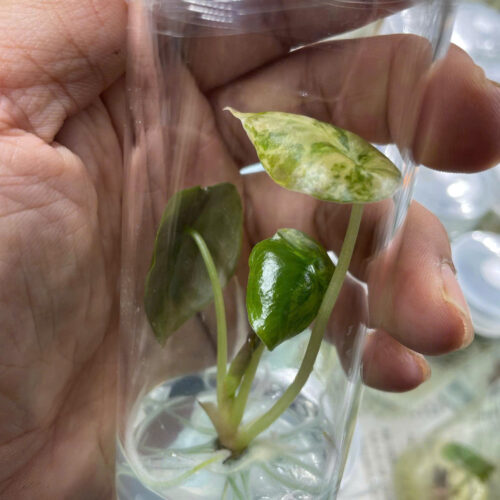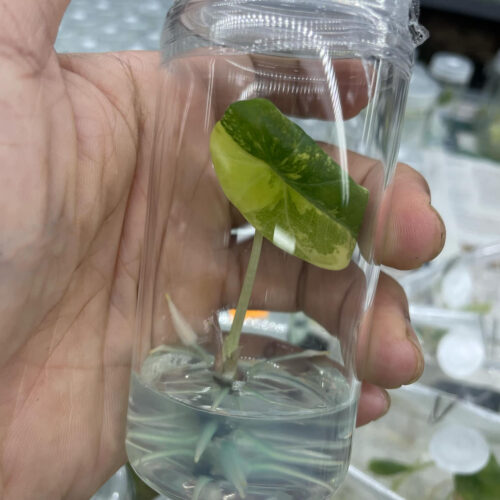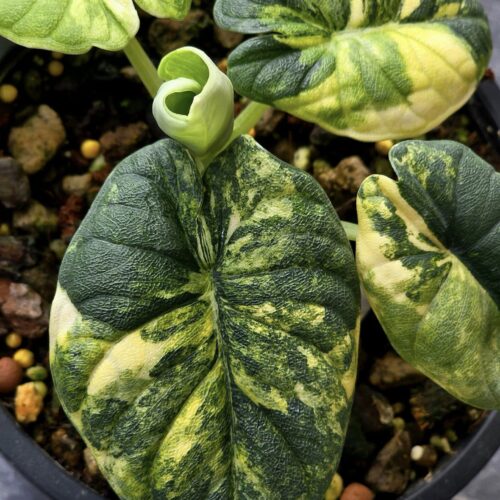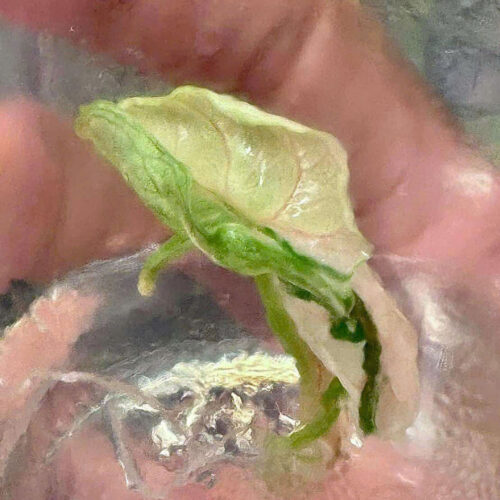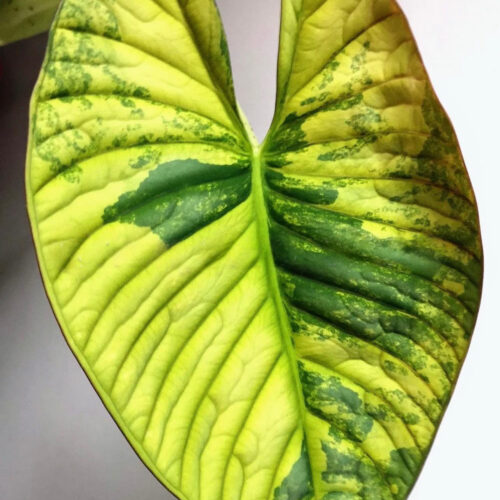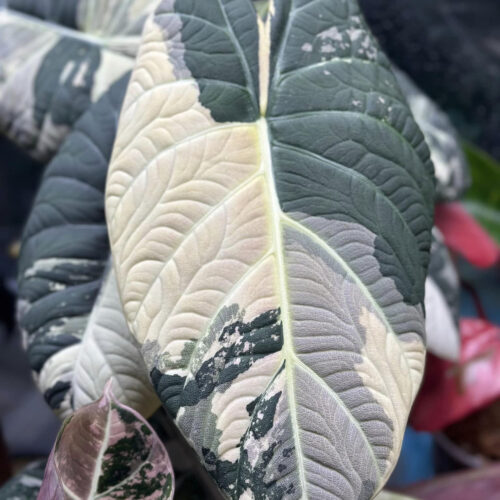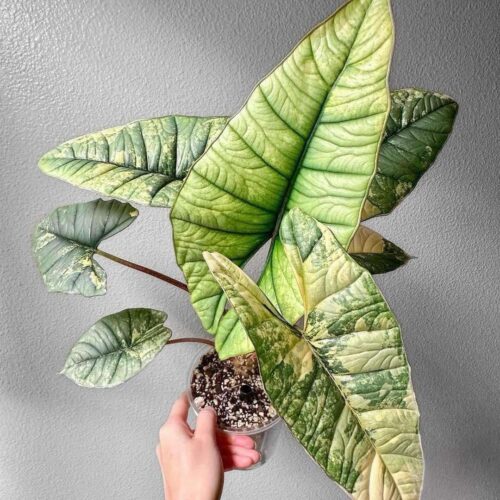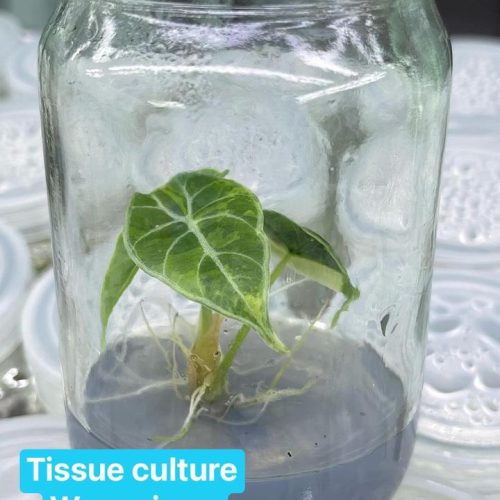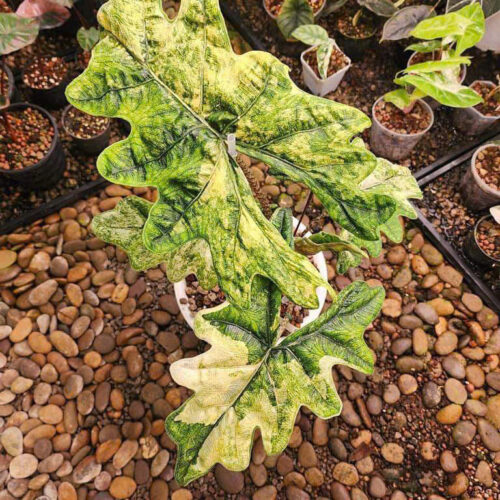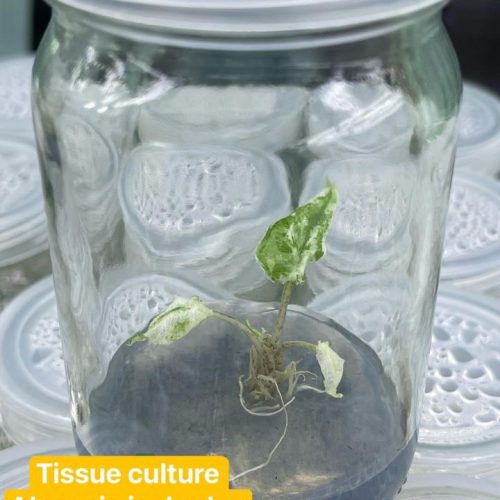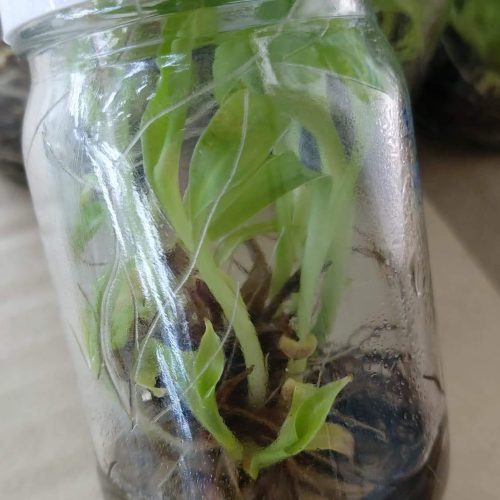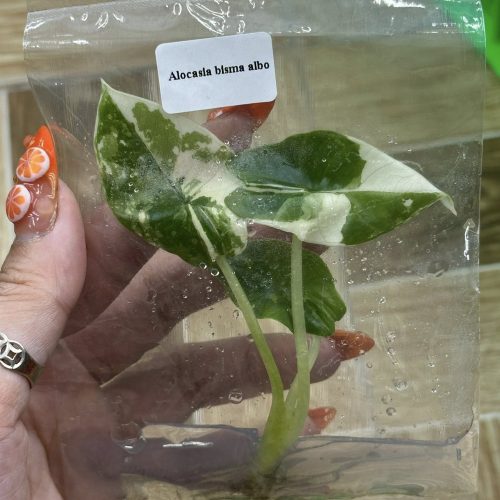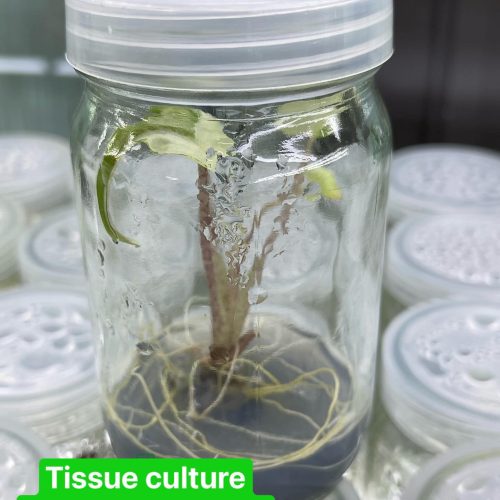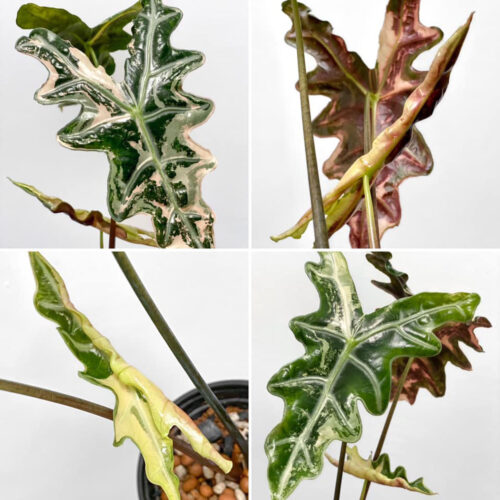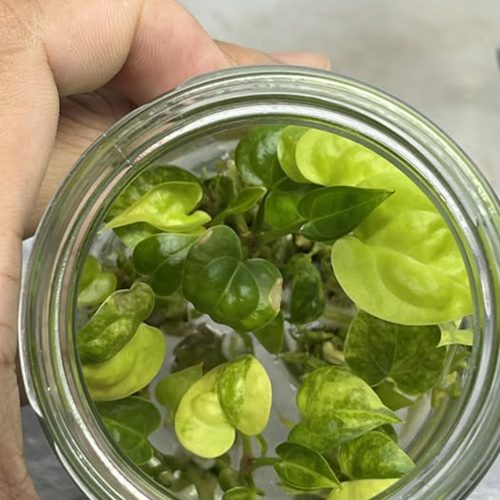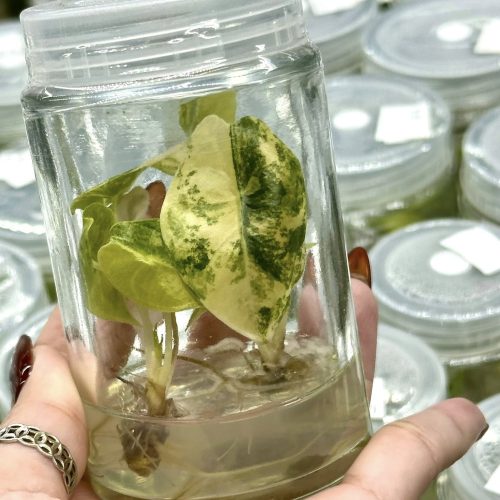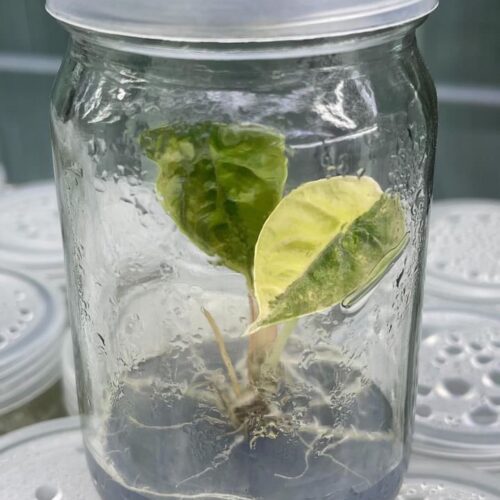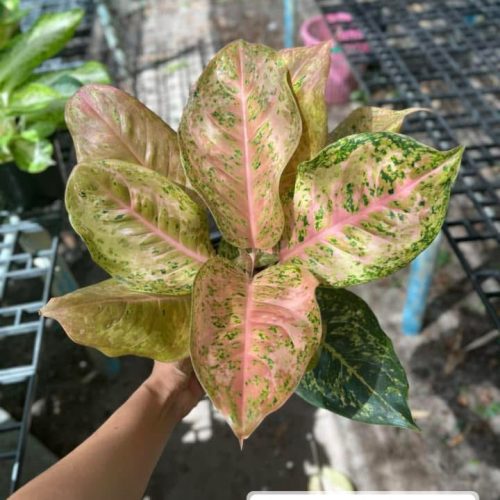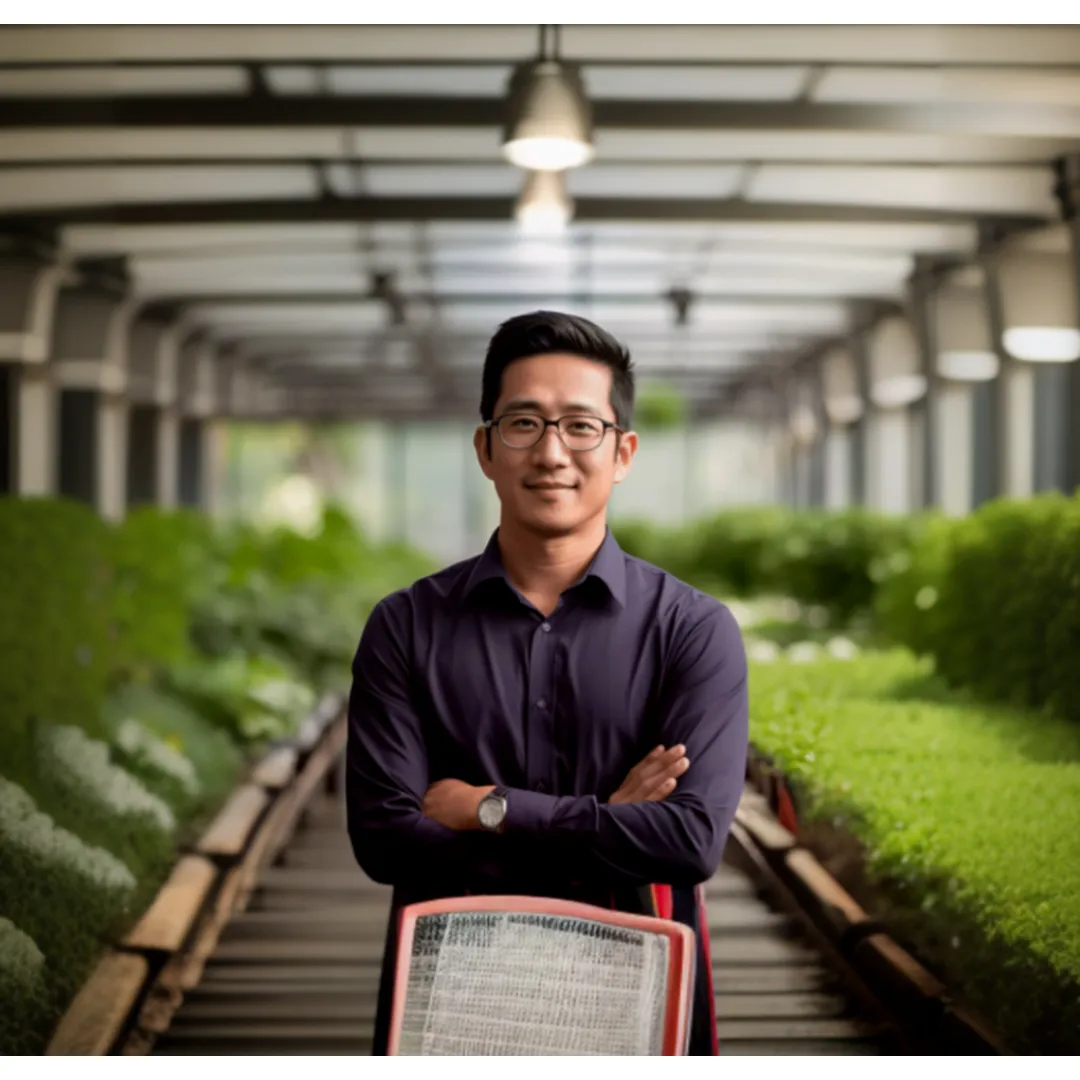Monstera
Monstera is one of the most popular houseplants known for its iconic split leaves. With proper care, monsteras can grow into large, climbing vines in their natural habitat. Their unique foliage and ease of care make them an ideal candidate for tissue culture. Here are some key reasons monsteras are great for propagating in vitro:
Easy to Sterilize
Monstera leaves and nodes are easy to sterilize for tissue culture. Their smooth surfaces allow thorough washing and disinfection. Any bacteria or fungi on the surface can be killed off with bleach, alcohol, or other sterilants. This helps establish sterile starter cultures free of contamination.
Rapid Growth
Monsteras are fast growing plants when given proper warmth, humidity, and nutrients. Their vigorous growth allows cultures to quickly proliferate in the artificial environment of test tubes and jars. More plantlets means higher yields over shorter time periods.
Aerial Roots for Micropropagation
Monsteras produce aerial roots that can be used for micropropagation. These sturdy aerial roots are great starting points for shoot cultures. The roots can be trimmed into nodes and induced to form plantlets. This provides a steady supply of propagation material.
Cool-Growing
Monsteras grow well in the cool conditions required for tissue culture. Temperatures of 65-75°F suit them nicely. This matches the typical temperature range for plant tissue culture. Their Central American origins mean they thrive without hot or tropical conditions.
Tolerant of Low Light
Monsteras can tolerate the low light levels present in tissue culture vessels. Their thick, dark green leaves adapt well to low light. Grow lights may not even be needed once cultures are established. This reduces equipment costs.
Climbing Growth Habit
The natural vining habit of monstera creates cascades of leaves and stems in culture. This helps maximize yields in limited space. The vines branch readily, increasing propagule production. Their climbing growth works perfectly for the confined environment of test tubes and jars.
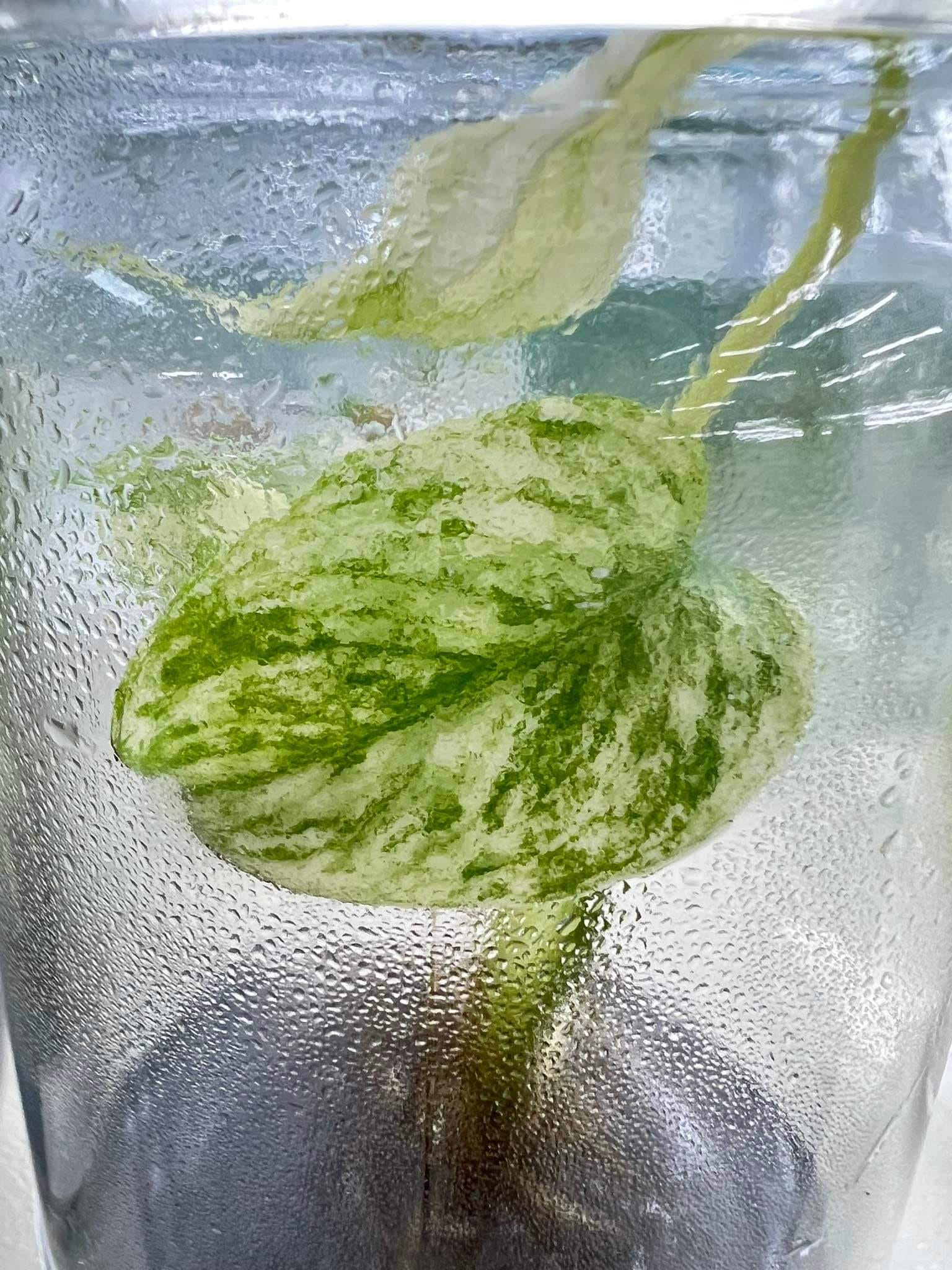
Philodendron
Philodendrons are a diverse group of tropical foliage plants that are well-suited for tissue culture propagation. Here are some key reasons philodendrons make excellent micropropagation candidates:
Easily Sterilized
Like monsteras, philodendrons have smooth leaf surfaces and nodes that are readily sterilized for culture initiation. Their waxy leaves allow thorough surface disinfection. This prevents contamination by rogue microbes.
Fast Growers
Given warm temperatures, high humidity, and adequate nutrition, philodendrons grow quickly. Their speedy growth enables cultures to progress through multiple subcultures rapidly. More plantlets are generated in shorter timeframes.
Climbing/Vining Types
Many philodendrons have a vining growth habit in nature. This climbing form translates well to the confined spaces of tissue culture vessels. Long trailing stems with multiple nodes propagate readily in vitro.
Aerial Root Production
Numerous philodendrons produce copious aerial roots. These make ideal starting material for shoot tip cultures. The long wiry roots can be trimmed into nodes and propagated into whole plants.
Tolerant of Low Light
Like their monstera cousins, philodendrons can grow under the low light conditions present in culture vessels. They tend to have broad, dark green leaves that can utilize minimal light. No special grow lights are required.
Cool-Growing
Temperate growing conditions suit philodendrons well. Temperatures of 65-75°F work perfectly for growing philodendron cultures, matching typical culture environments. Warmth is needed but not tropical heat.
Stem Cuttings Root Easily
Stem cuttings from philodendrons form roots readily in culture. This allows accelerated production of whole plantlets. Both nodal sections and shoot tips propagate quickly into full little plantlets.
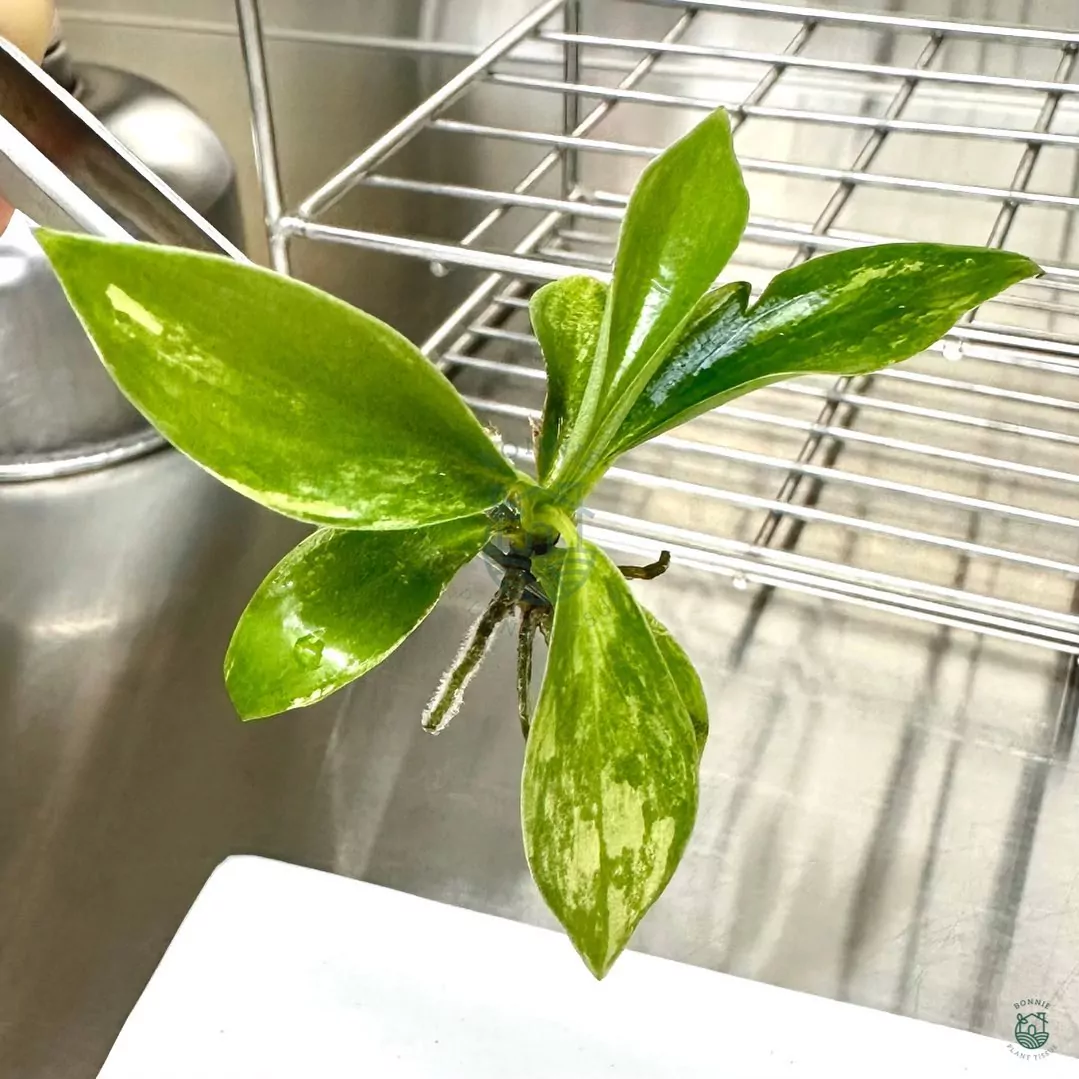
Syngonium
Syngoniums are trailing Aroid vines that produce arrowhead-shaped leaves. Their mix of ease of care, fast growth, and climbing habit make them ideal candidates for tissue culture. Here’s why syngoniums excel at micropropagation:
Sterilize Readily
Like many Aroids, syngoniums have smooth, waxy leaves and stems that clean up for sterilization easily. Thorough washing and surface disinfection effectively prevents contamination.
Rapid Multipliers
Given proper conditions, syngoniums grow exceptionally fast. Their speedy growth allows cultures to progress through many stages quickly under sterile conditions. More propagules are generated at a rapid rate.
Climbing Vines
Syngoniums are naturally vining plants. Their trailing flexible stems propagate readily in the tight spaces of culture vessels. Long vines with multiple nodes maximize productivity.
Tolerate Low Light
The thick, dark green leaves of syngoniums adapt well to low light levels. No special grow lights are needed to maintain active growth. Typical culture conditions suffice.
Aerial Root Production
Syngoniums tend to produce abundant aerial roots as they climb and trail. These wiry roots are great propagation starters. They can be trimmed to nodes and grown out into full plants.
Warm Growing Conditions
Like many tropicals, syngoniums grow best in warm conditions around 70-80°F with high humidity. This matches perfectly with typical plant tissue culture environments.
Cool Night Temps Acceptable
Though syngoniums prefer warmth, they can tolerate cooler 60-65°F night temperatures. temperature fluctuations in this range are perfectly fine for culture growth.

Epipremnum
Epipremnum aureum, also known as golden pothos or devil’s ivy, is another highly versatile Aroid vine suitable for tissue culture. Here are some factors that make epipremnum ideal for micropropagation:
Easy Surface Sterilization
Like its Aroid cousins, epipremnum has smooth waxy leaves and stems that clean up nicely for sterilization. Bleach, alcohol, and other disinfectants readily kill surface microbes.
Quick Growth
In warm conditions with adequate moisture and nutrients, epipremnum grows rapidly. Its fast growth enables cultures to progress through multiple stages efficiently under sterile conditions.
Climbing/Vining Habit
The vining habit of epipremnum is perfectly suited to the tight confines of test tubes and jars. Its long flexible stems maximize propagation with numerous nodes.
Low Light Tolerance
Epipremnum’s classic heart-shaped leaves readily adapt to low light levels present in culture vessels. No special lighting is required to maintain active growth.
Aerial Root Production
Like many trailing Aroids, epipremnum produces copious aerial roots as it grows. These serve as ideal starter material for micropropagation. The wiry roots grow readily into full plants.
Warm, Tropical Conditions
As a tropical plant, epipremnum thrives in warm humid environments around 70-80°F, much like tissue culture conditions. It grows best in high heat and humidity.
Tolerates Varied Conditions
Though it prefers tropical warmth, epipremnum adapts well to cooler indoor conditions. It can tolerate temp fluctuations and grow in a wide range of environments.
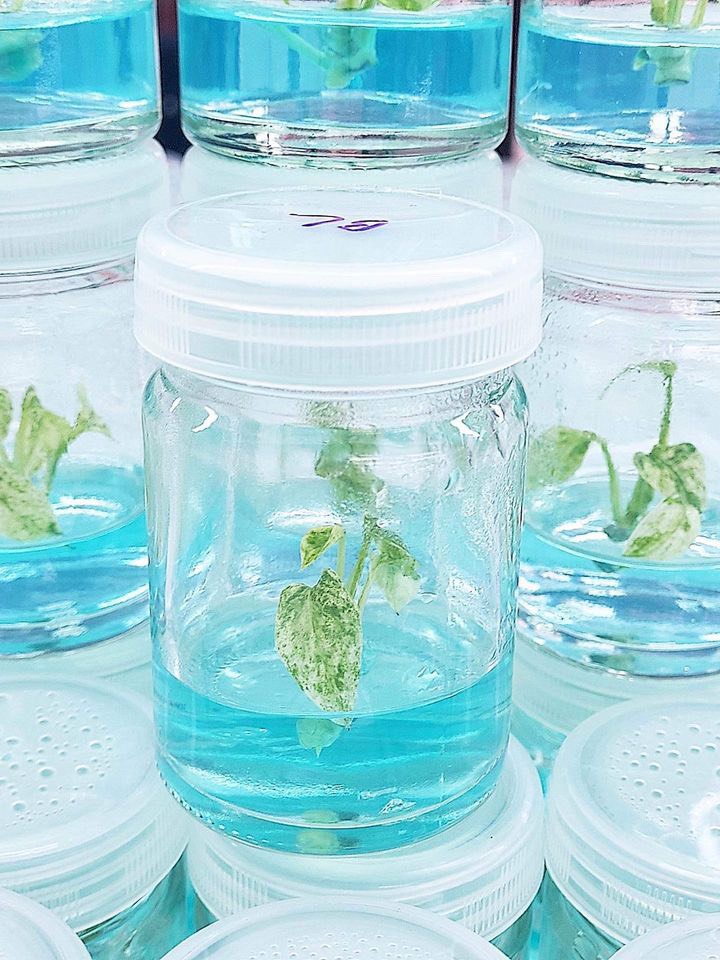
“Don’t miss out on our exclusive collection of tissue culture aroid plants. Add them to your cart now!”
Alocasia
Bold, tropical Alocasia plants are grown for their ornamental elephant ear leaves. Alocasias also happen to be great candidates for tissue culture propagation. Here’s why they excel at micropropagation:
Easy Sterilization
Alocasia leaves have smooth, easily sanitize surfaces. Their waxy texture allows thorough sterilization with bleach or alcohol. This prevents cross contamination.
Fast Multiplication Rates
Alocasias grow quickly given adequate warmth, water and fertilization. Their speedy growth under sterile conditions allows for rapid culture progression and scale-up.
Thick Leaves
The substantial leaves of alocasias are packed with nutrients and energy to sustain growth. This fuels rapid cell division and proliferation in culture. Their leaves drive plantlet production.
Tropical Conditions
Alocasias thrive in the high heat and humidity preferred in plant tissue culture – 70-80°F and 80-90% relative humidity. Alocasias originate from Asian tropical jungles.
Low Light Tolerance
Thick alocasia leaves can utilize the low light levels present in culture vessels, allowing active growth and plantlet generation. Little to no supplemental lighting is needed.
Rhizomes for Propagation
Thick alocasia rhizomes are ideal propagation starters, similar to bulbs or tubers. These underground stem tissues generate new shoots.
Grow New Plants from Leaves
Alocasia leaves can sometimes generate entirely new plantlets. Their cells can dedifferentiate and form shoots when sterile excised leaves are cultured.
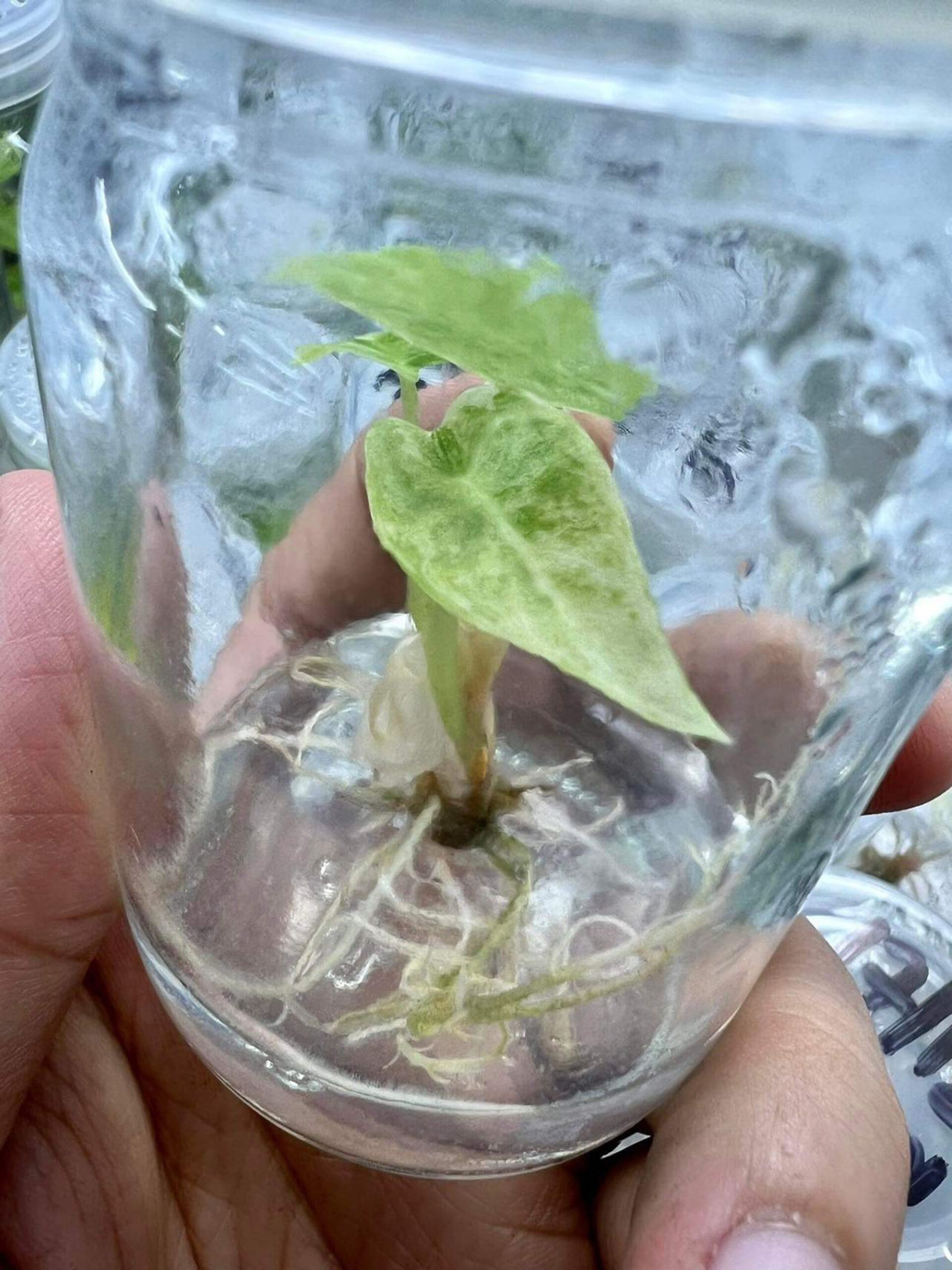
Anthurium
Anthuriums are tropical flowering plants grown for their colorful waxy bracts. Besides their ornamental flowers, here is why anthuriums are also excellent candidates for tissue culture:
Easy to Sterilize
Like many tropicals, anthuriums have smooth, waxy leaves and stems that clean up nicely. Their surfaces sterilize readily with bleach or alcohol treatment.
Rapid Growth Rates
Given warm, humid, tropical conditions, anthuriums grow quickly. Their vigorous growth allows for efficient micropropagation and rapid subculture cycles.
Climbing/Epiphytic Types
Many anthuriums are climbing vines or epiphytes (air plants) in nature. Their vining flexibility lends itself well to propagation in confined lab vessels.
Tolerate Low Light
Anthuriums adapt well to low light levels present in culture, allowing good growth rates without supplemental lighting. Their thick tropical leaves utilize minimal light efficiently.
Leaves and Roots as Explants
Both anthurium leaves and adventitious roots can serve as source material for initiation of sterile cultures. These explants generate rapid proliferation.
Warm, High Humidity
As tropical plants, anthuriums thrive in the warm, humid conditions typically used in plant tissue culture – 70-80°F and 80-90% humidity.
Grow in Varied Conditions
Though tropical, some anthuriums adapt well beyond their native environment, allowing flexibility. They tolerate some temperature and humidity fluctuations.
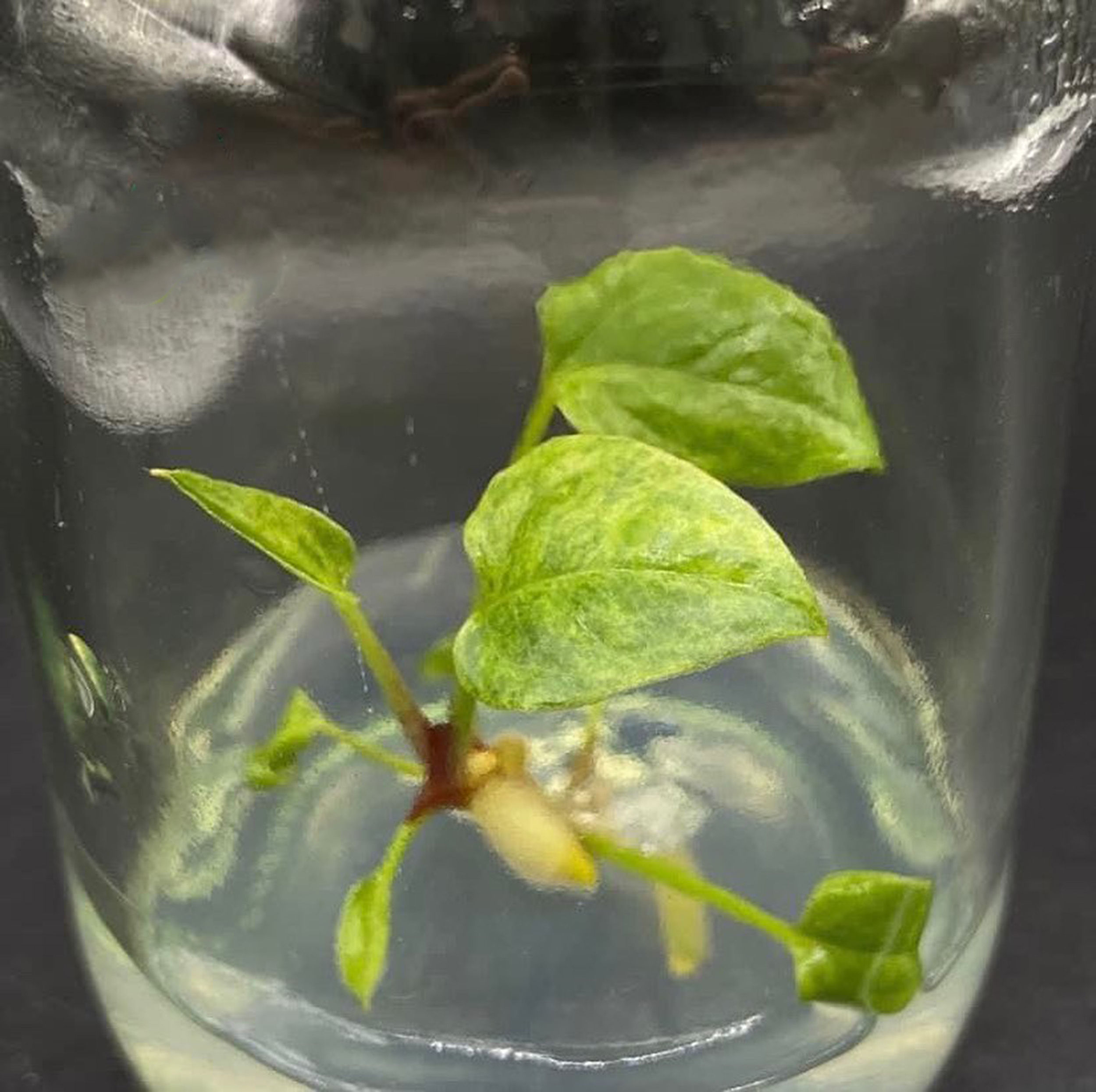
Where to buy Tissue culture plants? Benefits from importing plants from Thailand
- Shipping: Door to door shipping, fast and safe with Dragon Courier
- Biodiversity: Thailand is known for its rich biodiversity, including a wide variety of aroid species. This diversity allows importers to access a broad range of unique and exotic aroid plants.
- Quality and Health of Plants: The suitable climate helps the plants grown here stay healthy and of high quality.
- Cost-Effectiveness: Due to favorable growing conditions and efficient production methods, Thai aroid plants can often be more cost-effective compared to those from other countries.
- Access to Hybrid Varieties: Thai growers are often involved in the development of new hybrid aroid varieties, offering unique plants that may not be available from other sources.
Tissue culture plants species are the most sought after by aroid plant lovers
FAQ
- Q: What are tissue culture plants? A: Tissue culture plants are cultivated using a technique that involves growing plant cells, tissues, or organs in a controlled environment, typically in a laboratory setting. This method allows for the propagation of plants with desirable traits or characteristics.
- Q: What are the best plants for tissue culture? A: The best plants for tissue culture vary depending on the specific goals and applications. However, some commonly cultured plants include orchids, bananas, strawberries, and various ornamental plants. The choice of plants depends on factors such as ease of propagation and market demand.
- Q: How do I choose the right plants for tissue culture? A: Selecting the right plants for tissue culture involves considering factors like the plant’s genetics, growth rate, disease resistance, and commercial value. It’s essential to conduct research and consult experts to make informed choices.
- Q: What are the advantages of tissue culture propagation? A: Tissue culture propagation offers several advantages, including rapid multiplication of plants, production of disease-free plants, preservation of unique or endangered species, and the ability to create genetically identical plant clones with desirable traits.
- Q: Can I perform tissue culture at home, or is it only for professionals? A: While tissue culture is often conducted in laboratories by professionals, some enthusiasts with the necessary skills and equipment can attempt it at home. However, it’s essential to have a good understanding of the technique, maintain sterile conditions, and follow safety protocols to succeed in tissue culture at home.
Ready to Dive into the World of Tissue Culture Aroids? Explore our curated collection of Tissue Culture Aroid Plants at Greenboog, where we’ve harnessed the power of science to bring you the most sought-after and rare varieties. From the vibrant variegation of Philodendrons to the striking foliage of Monsteras, our tissue-cultured plants are disease-free, robust, and ready to thrive in your collection. Discover the future of plant propagation and elevate your indoor jungle with Greenboog’s Tissue Culture Aroids.

